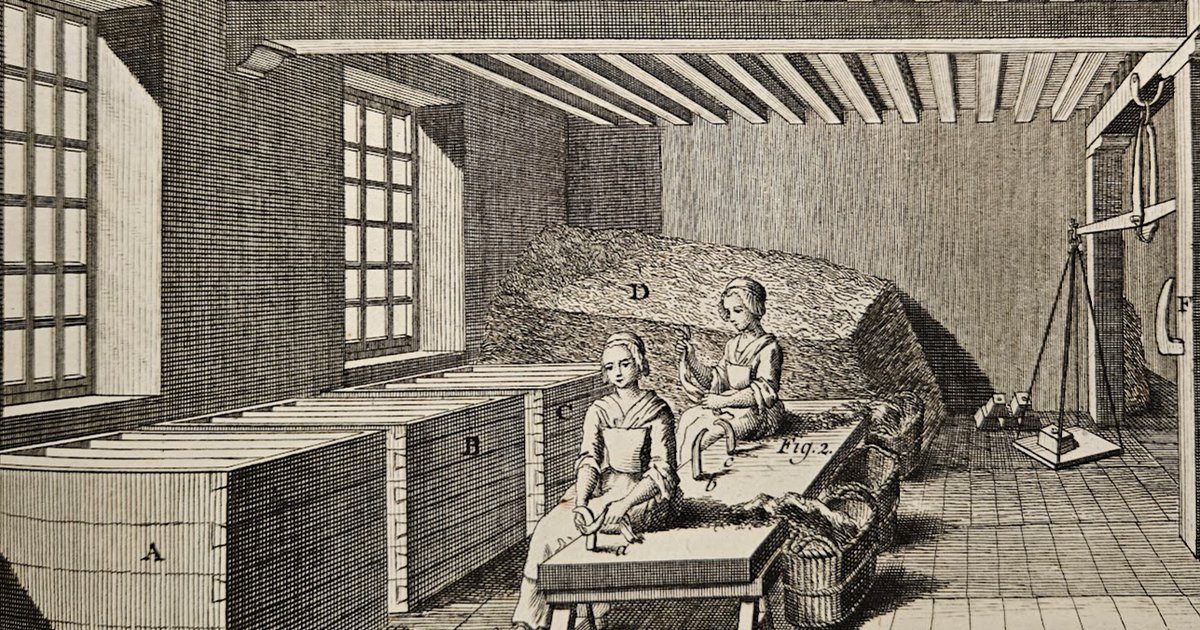Special Collections Research Center Hosting Pop-Up Exhibition And Mini-Seminar On The Global History Of Handmade Paper

Syracuse University Libraries’ Special Collections Research Center (SCRC), a member of the Coalition of Museum and Art Centers, is hosting a pop-up exhibition and mini-seminar on handmade paper on October 2, 2023 on the 6th floor of Bird Library in the Lemke Room. Following are details for the two events:
Global Perspectives on Hand-Made Paper: A Pop-Up Exhibition at the Special Collections Research Center
11 a.m. —1 p.m.
Originating in China around 100 BCE, paper spread via Silk Road routes to the Middle East and reached Europe by 1151 as a result of Arab conquests of Spain. After its introduction to Spain, paper gradually extended its reach to Italy in 1276, followed by France in 1348 and Germany in 1390, eventually making its way to England by 1495. More resilient than papyrus and more affordable than parchment, paper was the most suitable printing surface and as such played a pivotal role in the development of printing technologies and the dissemination of knowledge. This pop-up exhibition showcases a wide selection of materials on paper from SCRC. Encompassing Asia, the Middle East and Europe and spanning a time frame stretching from the 8th to the 18th century, the display provides a comparative overview of different types of paper and investigates cross-cultural connections facilitated by this medium.
Cross-Cultural Approaches to Handmade Paper: Mini-Seminar with Materials from the Special Collections Research Center *
2:30 — 4:30 p.m.
SCRC and the Department of History are pleased to present a mini-seminar focused on paper types from the 8th to 18th centuries CE, conducted by Dr. Cathleen A. Baker, a retired book conservator, educator and book historian. Baker will discuss handmade paper across cultures, highlighting its production in Asia, the Middle East and Europe during the pre- and early modern periods using various collection materials from SCRC as examples.
*Due to limited space capacity, advance registration is required for the mini-seminar by using this form: https://syracuseuniversity.qualtrics.com.
About Dr. Cathleen A. Baker:
Cathleen A. Baker is a retired paper and book conservator and educator with almost 50 years of experience, including at the Courtauld Institute of Art (University of London), SUNY Cooperstown/Buffalo State College and the University of Michigan. She is the author of several articles and books, including By His Own Labor: The Biography of Dard Hunter (2000) and From the Hand to the Machine. Nineteenth-Century American Paper and Mediums: Technologies, Materials, and Conservation (2010). She holds an M.A. in art history from Syracuse University, as well as an M.F.A. in book arts and a Ph.D. in communication studies from the University of Alabama. Since 1997, Baker has been the founding proprietor of The Legacy Press, a renowned publisher specializing in book history. She is now a faculty member of Rare Book School (University of Virginia), where she teaches Paper as Bibliographical Evidence. Her ongoing research project investigates the first wove paper manufactured in Europe, which appeared in John Baskerville’s Virgil (1757).
About Special Collections Research Center :
Syracuse University Libraries’ Special Collections Research Center collects, preserves and provides access to materials that document the history of Syracuse University and our global society, including rare printed materials, original manuscripts, photographs, artworks, audio and moving image recordings, University records and more. Collection areas include activism and social reform, radicalism in the arts, architecture and industrial design, photography, the history of recorded sound and more. Located on the 6th floor of Bird Library, the SCRC is a vibrant research and learning environment for Syracuse University students, faculty and the broader scholarly community, providing access to world-renowned rare and archival collections and expert guidance in their use to facilitate personal discovery and the creation of new knowledge.
